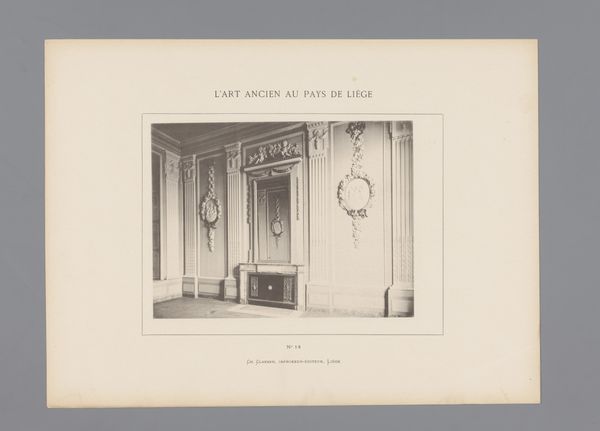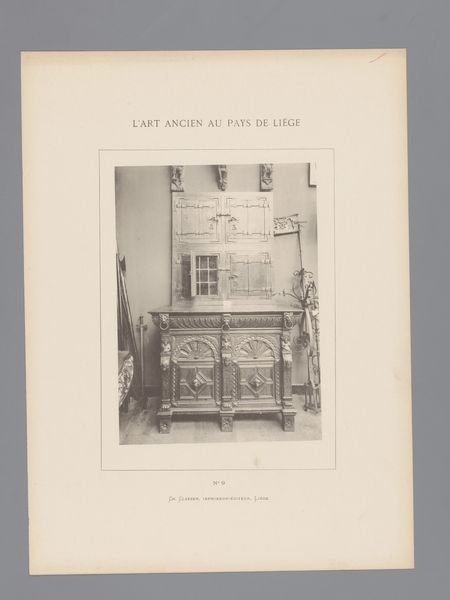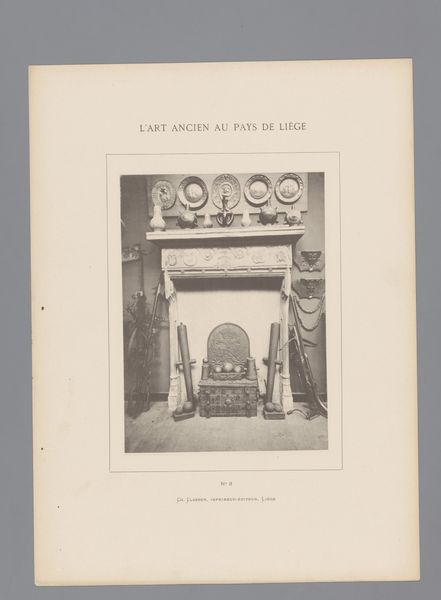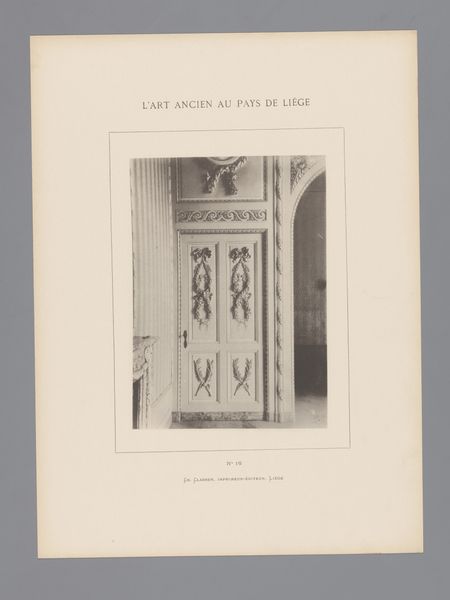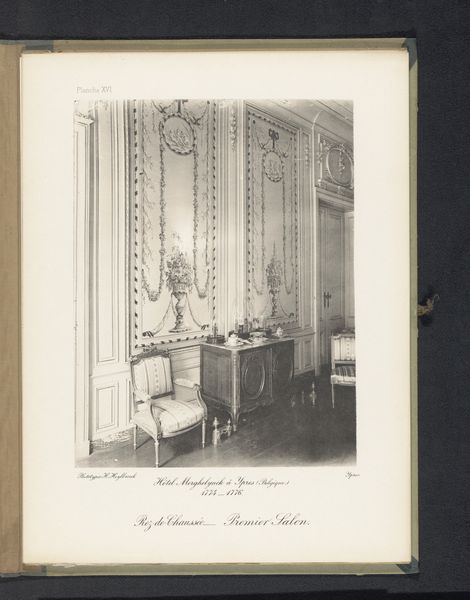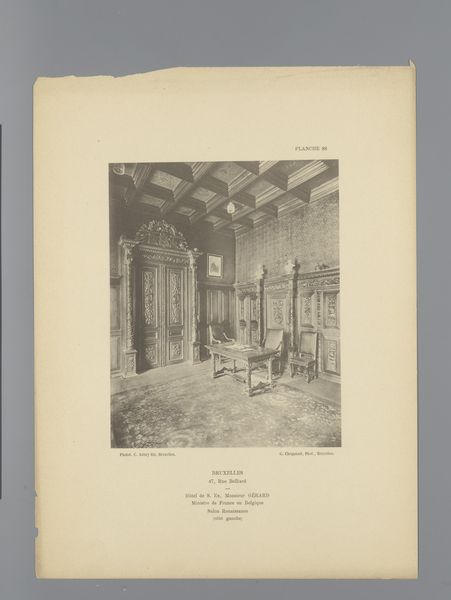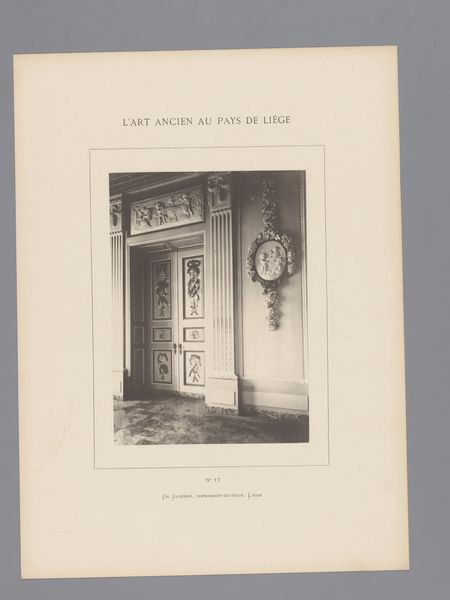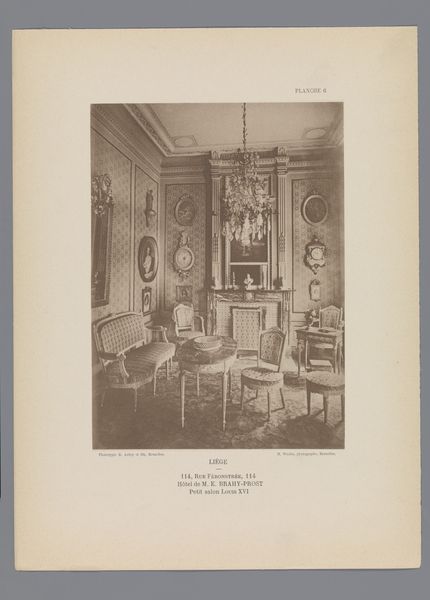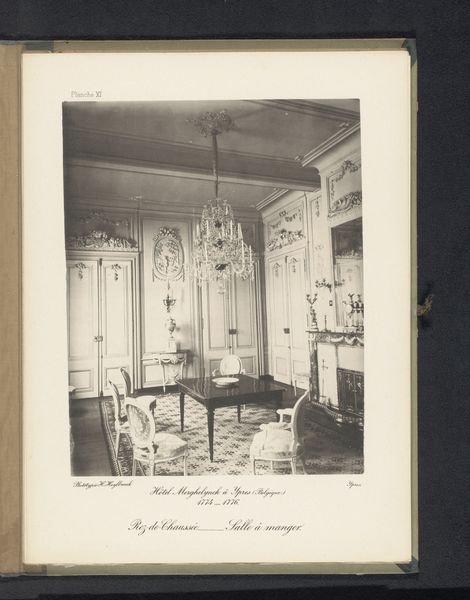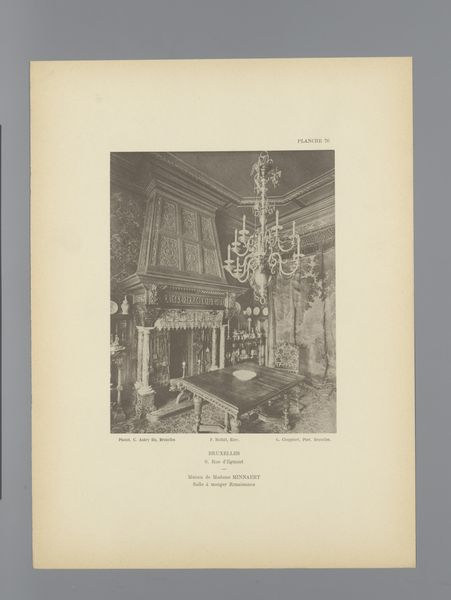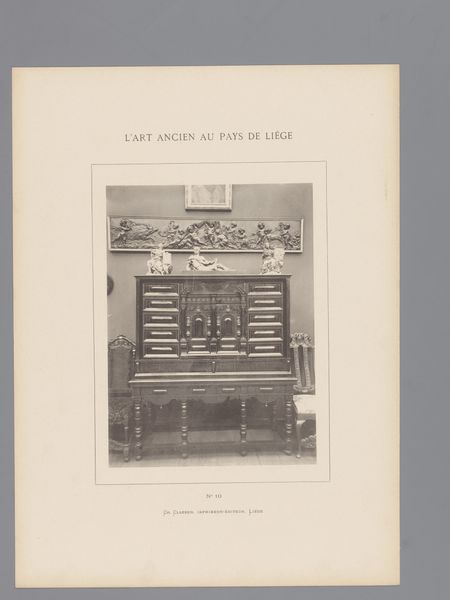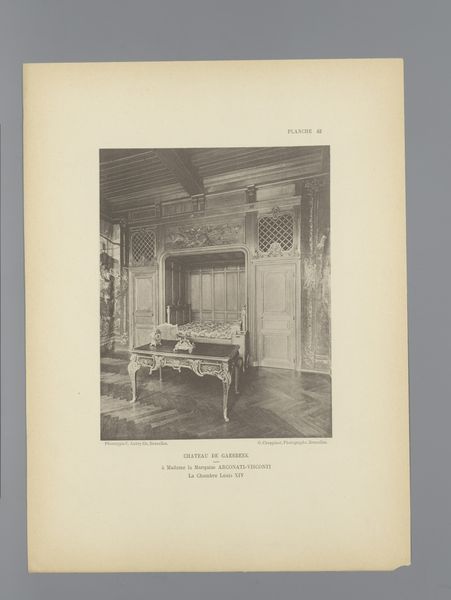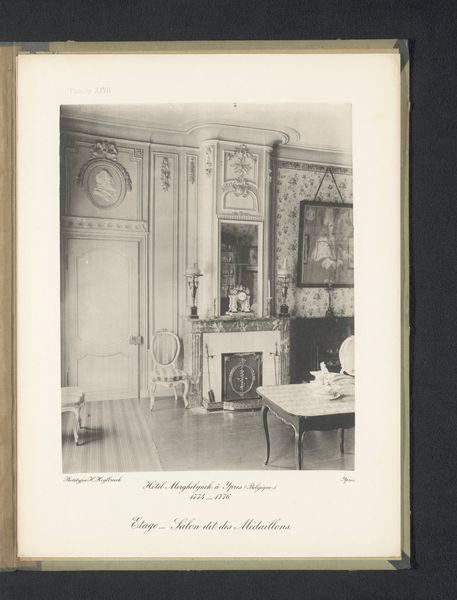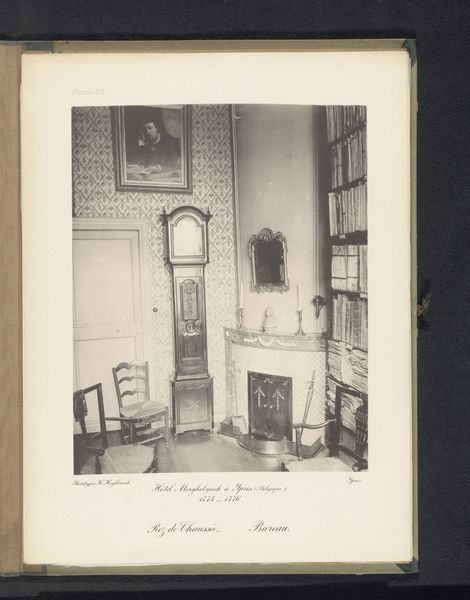
print, photography, architecture
# print
#
classical-realism
#
photography
#
column
#
academic-art
#
architecture
Dimensions: height 219 mm, width 163 mm
Copyright: Rijks Museum: Open Domain
Editor: This is a photograph titled "Kamer met zuil in de oude prefectuur in Luik, België," placing us in Liège, Belgium, sometime before 1884. It seems to depict the interior of a stately room. The detail on the wall paneling is really striking. What catches your eye? Curator: The materiality is key. This isn't just about aesthetics, but about labor. Consider the means of production – the printing process itself. This image documents a space that would have been meticulously crafted; consider the craftsmanship in creating the mouldings versus the industrial production of photography in that era. Does it blur the lines between high art and craft by documenting a room built by labourers? Editor: That’s an interesting angle. I hadn’t considered the print itself as a form of labor alongside the creation of the room. It almost feels like it’s capturing a moment of transition, a shift in how art and architecture were being documented and disseminated. Do you see any connection between the architectural style of the room and social context? Curator: Absolutely. The classical details suggest a connection to power and wealth, referencing earlier historical periods of opulence. These details are translated into the image, available for mass consumption through print media. How does reproducing an image of this room through photography make it accessible to a wider audience, democratising, in a sense, the look if not the feeling of this interior? Editor: That's such a great point. It does open it up, creating a tension between the exclusivity of the space and the relative accessibility of its photographic reproduction. This photo documents a physical and cultural history being democratized by technology and process, making both more consumable. Thanks for bringing that perspective to my attention. Curator: And thank you for the keen observations!
Comments
No comments
Be the first to comment and join the conversation on the ultimate creative platform.
